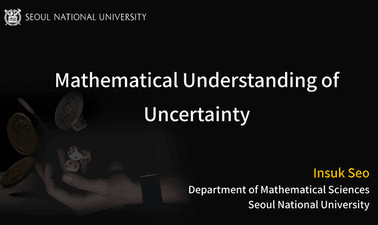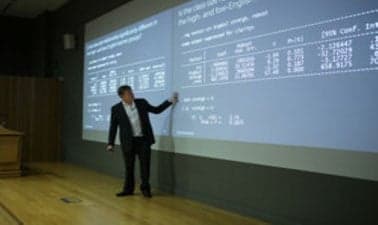This course introduces the basic tools and methods of statistical analysis, which can be applied to a wide variety of situations and data encountered in the areas of business and economics. Topics discussed include descriptive statistics, probability, sampling distributions, estimation, and hypothesis testing. By the end of the semester students should be able to compute and interpret basic descriptive statistical measures, understand the basic concepts of probability, and apply techniques of statistical inference.










